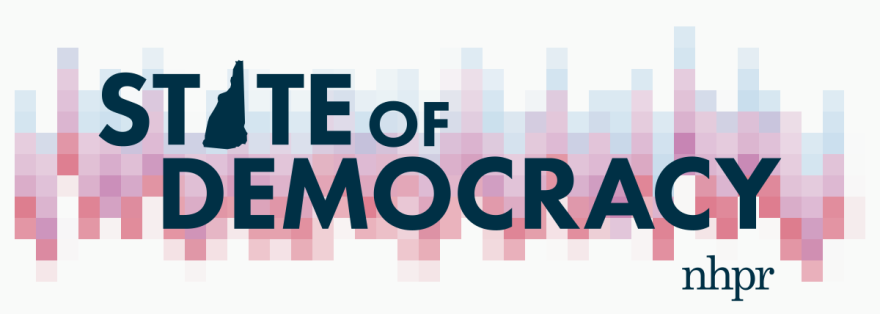Presidential candidates usually hit the campaign trail carrying a long list of issues they hope to talk about. But lately, voters in New Hampshire have been forcing an issue of their own into candidates’ stump speeches: the state’s ongoing opioid crisis.

And for some candidates, the more time they spend in New Hampshire, the more they find themselves talking about substance abuse. Speaking at a community forum devoted to the subject in Keene this week, Hillary Clinton put it this way:
“I have to confess, I was surprised. I did not expect that I would hear about drug abuse and substance abuse and other such challenges, everywhere I went.”
It’s a campaign development that follows recent shifts in public opinion. According to a recent poll by the University of New Hampshire, Granite Staters now consider drug abuse to be the second most important problem facing the state. Only the perennial issue of jobs and the economy ranked higher. A year ago on the same survey, drug abuse ranked last.
And that rise in public concern isn’t just the result of shifting political winds. Deaths from drug overdoses have skyrocketed in the state, rising forty percent over the last two years.
The issue has also increasingly been present in statewide public policy debates, including the ongoing negotiations over the state budget.
Tym Rourke, who heads the governor's task force on alcohol and substance abuse, said the campaign talk on substance abuse is largely a matter of political timing.
“We have candidates hitting the ground here in New Hampshire at the same time as you’re starting to see this crisis kind of emerge from the shadows and come out into the public fore," Rourke said. “I think in general you’re seeing a lot of the candidates listening and learning and trying to find out more about what’s happening here in New Hampshire. Recognizing that, what’s happening here is indicative of really a national crisis.”
So far, ‘listening’ seems to be the operative word for candidates who are focusing on this topic. When it comes to policy proposals to address the crisis, details are few. But that’s not due to a lack of suggestions from those working on the front lines here in New Hampshire. Christopher Adams is chief of police in Laconia, a community hit particularly hard by drug use. He’s one of a number of stakeholders the Clinton campaign has reached out to. For him, the ideal presidential agenda on this issue includes more funding for addiction treatment.
“We’re lacking severely – if you look at the number of people suffering from addiction versus the number of beds that are available in the state, it’s way out of whack. So a big increase in that area would be great," Adams said.
Sandi Coyle is the Recovery Engagement director at New Futures, an addiction advocacy group. Speaking at the forum with Clinton, she said she’s hoping for systems that harness the skills of those living in recovery.
“People with lived experience are extremely qualified and extremely effective at providing that warm hand-off for somebody coming out of treatment or somebody who’s been incarcerated, or somebody that’s trying to reintegrate into their community," Coyle said.
For others, addressing the stigma surrounding addiction within insurance providers is another priority.
It remains to be seen how or whether these prescriptions are incorporated into candidates’ platforms. At least some of the policies prescribed could be politically divisive. But on at least one closely related issue -- prison sentencing reform -- there has been bipartisan support. Several candidates, including Democrat Bernie Sanders and Republican Rand Paul, have called for a reduction in the number of non-violent drug offenders in prison. And that’s something that substance abuse advocates, including Tym Rourke, say is a step in the right direction.
“Issues of justice reform are very, very tied to the addiction issue because it is untreated addiction and untreated mental health issues that are driving some of our nation’s incarceration rates," Rourke said.
Experts aren’t the only stakeholders the candidates are hearing from. During the Clinton event in Keene, a show of hands revealed a majority of the audience had been personally affected by drug addiction. One of them was Marty Boldin, who is himself in long-term recovery. He seemed happy that there is a conversation happening at all.
“Thank you for bringing up this conversation at this level, because a voice like yours can make it safe for people like me and Sandi, and Polly, and hundreds of other people in this audience to speak out loud about what we can do to make our communities better," Boldin said.
Candidates are likely to hear a lot more from voters on this topic. More than 300 New Hampshire residents died last year of drug overdoses. This year the governor’s office has predicted there could be as many as 1,000 deaths.








